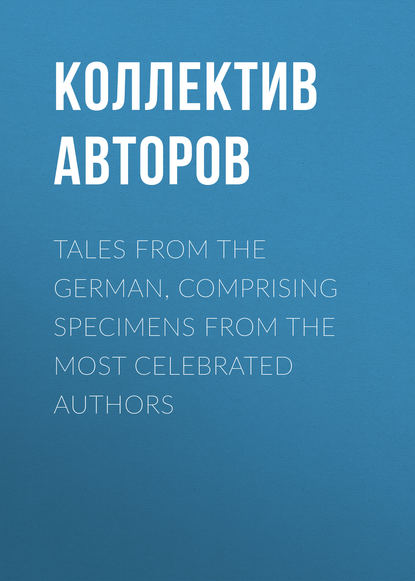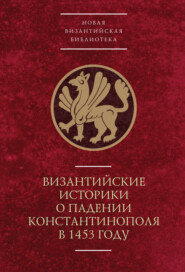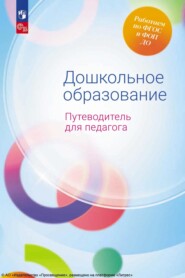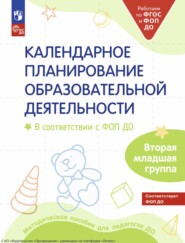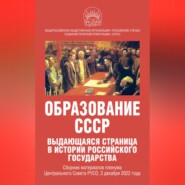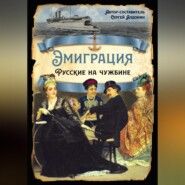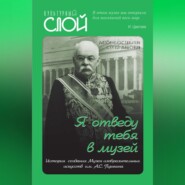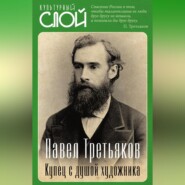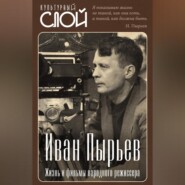По всем вопросам обращайтесь на: info@litportal.ru
(©) 2003-2024.
✖
Tales from the German, Comprising specimens from the most celebrated authors
Настройки чтения
Размер шрифта
Высота строк
Поля
"The news of my wife having been taken ill reached our friend's ears, and was likely to prevent the musical festival taking place. His wife came a few days afterwards with a female singer to inquire after Elizabeth's health. Not having said any thing, even to the doctor, of the apparition which my wife imagined she had seen, we of course did not mention this singular circumstance to our visiters. To all appearances my wife having quite recovered from her fright, we walked in our small garden with our friends conversing about the festival, and the baroness and the singer at length proposed to practise some music in my wife's presence, that they might have her opinion, though she might not perhaps be able to join.
"We therefore returned to the drawing-room, and as it became dark, candles were lighted. The singer sat at the instrument to accompany herself, on her right was the baroness, I was just behind, and my wife was on her left. We could not help admiring the voices and the style of the singers. The music by degrees became more animated and impassioned, and I had once already omitted turning the page, when, just as the next leaf was played, a long bony finger appeared on it, quickly turned the leaf at the right time, and the melody proceeded. I looked round and beheld the terrible Ernestine standing close by me behind the baroness; I know not how I kept my composure, but I looked searchingly and almost unmoved at the terrific apparition. She smiled at me with that malicious expression which, even when living, made her countenance repelling. She wore her usual dress, her eyes were fiery, and her face was white as chalk. I felt almost a satisfaction in the gloomy sensation of awe, remained silent, and was glad that Elizabeth did not perceive the spirit. Suddenly there was a shriek of terror, and my wife fell fainting on the ground, while the withered finger was just going again to turn the page. The music of course ended, my wife was in a fever, and our friends who had not seen the spectre returned home."
Here the invalid paused. The physician looked significantly at me, shaking his head.
"And you have," he at length said, "never before told your present doctor any thing of that apparition."
"No," replied Francis, "you may call it shame, or fear of his cold, searching understanding; you may call it weakness or what you please; suffice it to say I could not prevail on myself to make this confession."
"But it was very necessary," said the physician, "for how could he judge correctly of your illness without that information?"
"From that time," resumed Francis in a faint voice, "we determined to quit the neighbourhood in hopes that the furious spectre would not follow us beyond the mountains. But while we continued in our house we often saw her, mostly in the music-room. Our doctor being with us one morning, he sat down to the instrument and played some passages extempore. Suddenly the terrible spectre again stood by my wife's chair, and laid her cold withered hand on her shoulder. Hysterics and faintings again followed."
"And did your doctor see it also?"
"No," said Francis, "she appeared behind him, but I saw her distinctly then, as I often did afterwards by broad daylight. We had only to touch the keys of the instrument when she immediately appeared, so that to strike a note was a summons. When I once revisited the ancient Klausenburg, I found her sitting upon a stone staring at me. Thus persecuted, terrified, and in constant fear and anxiety, we have become ripe for death, and the physician despairing of our recovery advised us at last to visit this watering-place, as a last resource for restoring our shattered health. But hitherto we have not found any beneficial result. And who can assure us that the spectre may not here haunt us also. She intends to destroy us, and the most inconceivable things are possible to her strong will. I believe we need only sing an air, or play a sonata even at this distance, and she would make her appearance."
"I will answer for that, count," cried the doctor in a firm voice, "our faculty knows how to keep such malicious spirits at a distance."
Here our conversation ended; we sent the patient home in a sedan chair to his hotel, and I accompanied the physician.
While walking in the quiet of night through the dark avenues of trees, he said to me, "Dear sir, we are too much excited to sleep, favour me with your company to my lodging; a powerful aromatic cardinal[24 - A beverage usually prepared of wine, brandy, sugar, and pine-apples, or other fruit.] will keep up our spirits, and I will there tell you my opinion respecting our two invalids, of whose recovery, after what I have heard, I no longer doubt. I would almost promise that in two months I shall send them home in tolerably good health."
I was astonished at this, as I had given up all hope of the recovery of my friends. Our strongly-spiced beverage much enlivened us; and the doctor continued: "The mental disease of your friend is to me one of the most interesting psychological phenomena that has ever passed under my observation. He, as well as his wife, are labouring under a singular madness; and if we once succeed in attacking it rightly, then, in weakening, and finally in eradicating it altogether, the physical recovery will follow of itself. Though I did not know your friend formerly, yet, from his communications, I can exactly and truly construe his character and fate. He is naturally good and tender, the latter rather preponderating; and, like most men of this disposition, is more subject to vanity than those of firmer character. He has been handsome and amiable, possessed of talents, and persuasive manners, and has, therefore, been everywhere well received, so that, being a general favourite, and naturally pliant, he may have turned the head of many a pretty girl. Meeting, at last, with his beautiful wife, he determined to change his condition, and her naturally sensitive and nervous nature was delighted to call so amiable a gentleman her husband. And, as usually happens to enthusiasts, so is it in this case; they do not find in matrimony that transcendant felicity which they anticipated; a slight discord takes possession of the tender cords of the nerves, which impatiently look forward to new vibrations. The ugly, deformed sister felt, like most persons of the sort, jealousy and envy against the preferred, flattered, and fondled wife. She plainly showed her indignation, and confessed that she hated the count. This amiable conqueror of hearts now employed all his art to overcome this hatred. He succeeded, and the poor deluded creature even fancied that she had excited his affection, while his vanity exulted in the triumph. This heartlessness could not but mortify and shock the unfortunate Ernestine. An inward rage consumed her, she fell a victim to her unfortunate passion; and, dying, she uttered the menace to persecute them in every possible way. This is plainly madness. This madness, as has often been observed, is hereditary, and relations, brothers, sisters, and children, are seized with it whenever it is manifested in a member of the family. So in the case of your friend. Perhaps the affectionate count has not been quite silent on the subject to his wife; and she, being already in a delicate state, has indulged these fancies, and with anxious curiosity pursues the gloomy feelings produced by her nerves. Thus, what is more natural than that she should soon find an occasion on which she fancied she really saw her sister? The fears of his wife were communicated to him, anguish of mind at his misfortunes heated his imagination, and he also sees the apparition. Thus they go on, until both have nearly destroyed themselves by a mere phantom. If we can dissipate this phantom, they may be restored to health."
"Dear doctor," I replied, "I know not whether I have a particular propensity for superstition, but your reasons do not satisfy me. Much that has been handed down, both by tradition and writing, on this curious subject, cannot be mere fancy or invention, however much our reason may be opposed to it. There are, no doubt, states of the mind and of the nerves, as well as diseases, during which certain persons see what is veiled from all others. What is spirit? What notions does this word suggest? Do we know the nature, talent, or power, which these millions of differently constituted souls possess, after having shaken off their earthly frame? Do we know by what possibility this or that strong mind, by the power of his will, or anxious repentance, or a secret tormenting yearning after home, forms from his imagination a visible frame, such as he used to wear?"
"And supposing you to be quite right, what would you profit by it?" exclaimed the zealous doctor. "If any one who is in a discontented mood, or state of excitement, sees any thing, it is, indeed, only and always his own fancies, his own internal phases, which appear before his bodily eye. This may happen to any one at times. We have in the morning a vivid dream; we certainly awake, and still, for a moment, we see the child for whom we yearned, the lily or rose which delighted us, or an old friend who is a hundred miles distant. Perhaps it never yet happened that, to one of the many ghost-seers, his aged father or grandfather appeared as a youth or bridegroom, the murderer as a boy in his innocence, the wild spectre of an aged prisoner as a blooming virgin. Why, then, do not these spectres, for once, change their shape?"
"Because," rejoined I, "they perhaps can express their imagination only in the last state immediately preceding their change."
"Ah! this is idle," exclaimed the doctor, impatiently; "yield the point quietly rather than vainly endeavour to refute me. Assist me rather in restoring your friend."
"In what way can I do so?"
"It is only by some violent means that a happy beginning can be made. Believe me, in the deepest recesses of our minds there are still growing some weeds of vanity, concerning which we fondly deceive ourselves, by fancying that the external surface is the proper soil for them to luxuriate in. Even in moments of terror, in the horror of death, or during tormenting disease, we are tickled by the consciousness that, notwithstanding these, we experience something apart – that we see apparitions which awaken anxiety. Nay, we go further; we wish them back again, and as it were call them forth; our plastic and pliant nature, and our almost inconceivable fancy obey, and again such a bugbear is conjured up. Assist me then in persuading and disposing our invalid to have music in the count's or your own apartments; let us procure an instrument, and as the countess cannot sing, she will at least play. That they may not cause an excitement, should they again be seized by this mania, no one but yourself and I must be present, or at most her attendant in case of a relapse. But it will not happen in my presence, as I shall have my quick eyes everywhere. By these means our patients will gain confidence and tranquillity, and by a daily repetition, and the use of stronger remedies we shall cure their wild fancies."
"And if not?" I replied, with anxious doubt.
"Well then, by heavens!" he replied, with a loud laugh, "if I, without having previously taken too much, see any thing, then – "
"Then?"
"Then, baron, you shall call me a fool, which, viewed in the proper light, we are all by nature."
Thus we parted, and it required much persuasion to prevail upon my afflicted friend to consent to our experiment. His wife, to my astonishment was more easily persuaded. She said, not without reason, "I feel it, my life is drawing to a close, all help is vain, the nearer death is, the better. So much the better if a new terror can crush me like a stroke of lightning. And if the event which I anticipate does not take place, then my last days will at least be free from this fear and anxious horror; I shall be able to amuse and divert myself, and it remains in the hand of Omnipotence whether I and my husband shall have further hope of recovery."
The third day was fixed upon for music, and a late hour in the evening was appointed, because the countess, like most persons suffering from fever felt it strongest at that time, and would thereby shorten the night, as she seldom slept till morning. An instrument had been placed in the room; more lights than were required were burning, and the adjoining chamber likewise was brilliantly lighted, in order that no doubtful shadow might be produced in the dark. Besides the easy chair and sofa in the sitting-room, there was a couch, on which the countess reposed in the day. The piano was placed against the wall, between two windows, looking over the garden and some vineyards beyond. After tea, the door being locked, the waiter and servant were dismissed; no one remained but the countess's attendant, a strong young woman, whom we begged to keep up her spirits.
The countess took her seat at the instrument. The doctor stood beside her, in order to observe her, as well as to overlook both rooms, while I sat and stood alternately on the other side. Francis, in his morning-gown and slippers, walked slowly up and down behind us, and the attendant leaned against the open chamber-door.
At first the countess played faintly, uncertainly, and timidly. But by degrees the beauty of the composition, and the consciousness of her talent inspired her, and she played with precision and fire a humorous and melodious fantasia. Her eyes sparkled, her cheeks were flushed, and a smile, full of soul, played upon her once beautiful mouth. The doctor cast a triumphant glance at me, and by the strong light, the mien and feature of every one in the room were distinctly visible. All praised the performer, and the doctor gave her something to revive her. She was as if inspired with new life, and confessed that she had not felt so well for the last year. Poor Francis was in raptures, and his tearful eyes were full of hope.
With the same arrangement we proceeded to the second piece, while she played still more confidently, and with less exertion. Bravos and applause accompanied her – when suddenly – a terrible shriek was heard – how shall I describe it? Never were my ears rent by such terrific sounds – it was some time after that I perceived that Francis had uttered it – the candles burned with a blue flame, but yet there was light enough. – And what a spectacle! – Francis, with foaming mouth, and eyes starting from their sockets, was clasping a horrible spectre; and wrestled with the withered hideous form. "You or I," he now cried, and it clasped him with its bony arms so firmly, pressed its crooked deformed body so strongly against his, and its pale face so firmly against his chest, that we all heard how in this struggle his bones were crashing. The attendant had hastened to assist the countess, who had fainted. The doctor and myself approached the count, just as he threw the spectre with gigantic force on the couch, which creaked under her. He stood erect. It lay on the couch like a cloud, like a dark cover, and as we approached, it was gone.
Francis now felt all his bones broken, his last strength was annihilated. In three days he was no more, and the physician found his body much bruised. The countess never recovered from her state of delirium, and two days afterwards she followed her beloved and unfortunate husband to his early grave.
C. A. F.
THE MOON
BY JEAN PAUL FRIEDRICH RICHTER
When, Oh Eugenius and Rosamond, – you, whom I may no longer designate by your right names, – I was first about to tell your short history, my friends and I walked into an English garden.[25 - Or, perhaps, "angelic garden," meaning a church-yard. The reading given above is most probably correct.] We went by a new-painted coffin, on the foot-board of which was written: "I pass away." Above the verdant garden rose a white obelisk, with which two sister-princesses had marked the spot where they now met and embraced, and the inscription on which was: "Here we have found each other again." The point of the obelisk was glittering in the full moon, and here I told my simple story. But do thou, gentle reader, draw – which is as much as coffin and obelisk – draw, I say, the inscription on the coffin into the ashes of oblivion, and write the letters of the obelisk with pure human heart's blood in thy inmost self.
Many souls drop from heaven like flowers; but, with their white buds, they are trodden down into the mud, and lie soiled and crushed in the print of a hoof. You also were crushed, Eugenius and Rosamond. Tender souls like yours are attacked by three robbers of their joys – the mob, whose rough gripe gives to such soft hearts nothing but scars; destiny, which does not wipe away the tear from a fair soul full of brilliancy, but the lustre should perish also, as we do not wipe a wet diamond, lest it should grow dim; your own hearts which rejoice too much, and enjoy too little, have too much hope, and too little power of endurance. Rosamond was a bright pearl, pierced by anguish – parted from all that belonged to her, she only quivered in her sorrows like a detached twig of the sensitive plant at the approach of night – her life was a quiet warm rain and that of her husband was a bright lost sunshine. In his presence she averted her eyes, when they had just been fixed on her sick child, that was only two years old, and was in this life a wavering thin-winged butterfly, beneath a pelting shower. The imagination of Eugenius, with its too large wings shattered his slight, delicate frame; the lily bell of his tender body could not contain his mighty soul; the place whence sighs originate, his breast, was destroyed like his happiness. He had nothing left in the world but his affectionate heart, and for that heart there were but two human beings.
These persons wished, in the spring-time, to quit the whirlpool of mankind, which beat so hardly and so coldly against their hearts. They had a quiet cottage prepared for them on one of the high Alps opposite to the silver chain of the Staubbach. On the first fine spring morning they went the long road to the high mountain. There is a holiness which sorrow alone can give in its purity; the stream of life becomes white as snow when it is dashed against rocks. There is an elevation where little thoughts no more intrude between sublime ones, as when upon a mountain one sees the summits close to each other without their connection in the depth below. Thou hadst that holiness, Rosamond, and thou that elevation, Eugenius.
A morning mist was gathered round the foot of the mountain, and in that three fluttering forms were suspended. These were the reflections of the three travellers, and the timid Rosamond started, thinking she saw herself. Eugenius thought, "That which the immortal spirit hath around it is, after all, but a denser mist." And the child snatched at the cloud, and wished to play with its little misty brother. One single invisible angel of the future accompanied them through life and up this mountain. They were so good and like each other that one angel was all they needed.
As they ascended the angel opened the book of fate, one leaf of which contained the sketch of a three-fold life – every line was a day – and when the angel had read the line that belonged to this day, he wept and closed the book for ever.
The travellers, in their delicate condition, required nearly a day to arrive at the desired spot. The earth crept back into the valleys, the sky rested itself on the mountains. The waving, glimmering sun seemed to our Eugenius a mirror of the moon, and he said to his beloved, when the icy summits had already cast their flames upon the earth: "I feel so weary, and yet so well. Will it not be as if we left two dreams – the dream of life and the dream of death – if we enter the cloudless moon as the first shore beyond the hurricanes of life?"
"It will be still better," replied Rosamond, "for in the moon, as thou hast taught me, dwell the little children of this earth, and their parents remain with them till they themselves become as mild and tranquil as children." Then they proceed further.
"Ay, from heaven to heaven – from world to world!" said Eugenius, ecstatically.
They ascended as the sun declined; when they climbed more slowly, the mountain summits like rising, loosened branches, concealed them from the luminary. They hastened on into the evening glimmer, which was already advancing, but when they had reached the mountain where their cottage stood, the eternal mountains stepped before the sun; – the earth then veiled her graces and her cities, adoring heaven, before it looked upon her with all its star-eyes, while the waterfalls laid aside their rainbows, – and the earth spread higher for heaven, which was bending over her with out-stretched cloud-arms, a gauze of golden exhalations, and hung it from one mountain to another, and the icebergs were set on fire, so that they glared even to midnight, while opposite to them on the grave of the sun was raised a towering funeral pile of clouds, forming the evening glow and the evening ashes. But through the glimmering veil kind heaven let its evening tears fall deep into the earth, even upon the humblest grass and the smallest flower.
Oh, Eugenius, how great then did thy soul become! The life of earth lay at a distance and far below thee, free from all the distortions which we see in it, because we stand too near it, as the decorations of shorter scenes change from landscapes to mis-shapen strokes when we look at them closely.
The two living ones embraced each other with a long and gentle embrace, as they stood before the cottage, and Eugenius said: "Oh, thou quiet, eternal heaven, take nothing more from us!" But his pale child with its snapped lily-head was before him; he looked at the mother, and she lay with her moistened eye reaching into heaven, and said softly: "O take us all at once!"
The angel of futurity, whom I will call the angel of rest, wept as he smiled, and his wings swept away the sighs of the parents with an evening breeze, that they might not sadden each other.
The transparent evening flowed round the red mountain like a bright lake, and washed it with the circles of cool evening waves. The more the evening and earth grew, still the more did the two souls feel that they were in the right place. They had no tears too many, none too few, and their bliss needed no other increase than its repetition. Eugenius sent the first harmonious tones floating like swans through the pure Alpine sky. The weary child, twined in a flowery wreath, leaned against a sun-dial, and played with the flowers which it drew around it, to entwine them in its circle. The mother at last awoke from her harmonious transport; her eye fell on the large eyes of her child, which opened wide upon her; singing and smiling, and, with overflowing motherly love, she stepped to the little angel, which was cold and dead. For its life, which had descended from heaven, had, like other tones, been dissipated in the atmosphere of earth; death had breathed upon the butterfly, and it had ascended from the rushing streams of air to the ever-refining ether; from the flowers of earth to the flowers of paradise.
Oh, ever flutter away, ye blessed children! The angel of rest wakes you in the morning-hour of life with cradle songs, two arms bear you and your little coffin, and your body, with the two red cheeks, the forehead free from the print of grief, and the white hands, glide down by a chain of flowers to the second cradle, and you have only exchanged one paradise for another. But we – oh, we are crushed by the storm-winds of life; our heart is weary, our face is deeply marked with earthly care, and our soul stiffened, still clings to the earthy clod.
Turn away thine eye from Rosamond's piercing shriek, fixed glance, and petrifying features, if thou art a mother, and hast already felt this pain! look not upon the mother, who, with senseless hand, squeezes against her the corpse which she now cannot stifle; but look at the father, who, with his breast, silently covers his struggling heart, although black grief has twined around it with an adder's folds, and poisoned it with an adder's teeth. Ah, when he at last had conquered the pain, his heart was envenomed and riven. A man bears the pain of the wound, but sinks under the scar: a woman seldom combats her grief, but yet she survives it. "Remain here," he said, with a suppressed voice, "I will lay it to rest before the moon rises." She said nothing, kissed the child in silence, broke up its wreath of flowers, sunk down upon the sun-dial, and laid her cold face upon her arm, that she might not see it carried away.
On the way the dawning light of the moon shone upon the shaking body of the infant, and the father said: "Burst forth, oh moon! that I may see the land wherein He dwells. Rise, oh Elysium! that I may think the soul of the corse is within thee. Oh child, child, dost thou know me – dost thou hear me? Hast thou above so fair a face as this one, so sweet a mouth? Oh thou heavenly mouth, thou heavenly eye, no more spirit visits thee!" He laid the child beneath flowers which supplied the place of all that we are generally laid upon for the last time; but his heart was breaking when he covered the pale lips, the open eyes, with flowers and earth, and streams of tears fell first into the grave. When with the verdant coating of the clods he had built a little mound, he felt that he was weary of his journey and of life; that his weakly chest could not endure the thin mountain air, and that the ice of death had settled in his heart. He cast a longing glance at the bereaved mother, who had long stood trembling behind him, and they fell silent into each other's arms, and their eyes could scarcely weep more.
At last, from behind a glacier that was glimmering out, the glorious moon flowed forth in loveliness on the two silent unhappy ones, and showed them its white peaceful meadows, and the gentle light with which it softens man. "Mother, look up," said Eugenius; "yonder is thy son! See there, the white flowery groves, in which our child will play, are passing over the moon." Now a burning fire filled his inmost self with consuming power, – the moon made his eye blind to all that was not light; sublime forms rolled before him in the light stream, and he heard in his soul, new thoughts which are not indigenous in man, and are too great for memory; just as in a dream small melodies may come to the man who can make none when awake. Death and pleasure press upon his heavy tongue. "Rosamond, why sayest thou nothing? Dost thou see thy child? I look beyond the long earth, even to where the moon begins. There is my son flying between angels. Full flowers cradle him, – the spring of earth waves over him – children lead him – angels instruct him – God loves him. Oh! thou dear one, thou art smiling; the silver light of paradise flows with heavenly radiance about thy little mouth, and thou hearest me, and callest thy parents. Rosamond, give me thy hand; we will go and die!"
The slight corporeal chains grew longer. His advancing spirit fluttered higher on the borders of life. With convulsive power he seized the paralysed Rosamond, and blind and sinking, stammered forth, "Rosamond, where art thou? I fly! I die! We remain together!"





